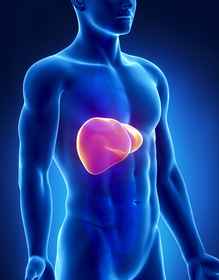- I want to see a doctor at NUCOT. How can I refer myself?
- What do I need to prepare for my first visit?
- Who is eligible for a liver transplant?
- Who can I get a donor liver from?
- What are the criteria for me to be added to the national waiting list?
- What are the types of liver transplants?
- How long is the wait time for a deceased donor liver transplant?
- How does the evaluation process work?
- What is the Transplant Ethics Committee (TEC)?
- What do I need to prepare before the surgery?
- What are the risks involved during surgery?
- What happens during the surgery?
1. I want to see a doctor at NUCOT. How can I refer myself?
You can contact our clinic at [email protected] to make an appointment with us or send in your enquiry.
2. What do I need to prepare for my first visit?
You will need to bring:
- Your medical records, test results and medical reports from your current healthcare provider.
- Your list of medications, including traditional/herbal supplements.
Think about any question(s) concerning organ transplantation that you would like our doctors to address. If your family member(s) are involved in your decision making and would like to find out more, you may ask them to join you for the first consultation.
3. Who is eligible for a liver transplant?
The transplant team will assess your suitability for a liver transplant based on:
- Your medical history: Not everyone is suitable for a liver transplant. You must not have conditions such as:
- Medical conditions that will shorten your life expectancy
- Severe pulmonary hypertension
- Drug or alcohol abuse
- Cancer not involving the liver
- Your health: Your body needs to be healthy enough to undergo surgery and tolerate post-transplant medications.
- Your discipline: Recommendations from the transplant team must be followed strictly and you will need to take the medications for life. You should have the discipline not to engage in any activities that will damage your new liver, such as drinking alcohol.
4. Who can I get a donor liver from?
A donor liver can come from a deceased donor or a living donor.
Living Donor
A living donor liver donation can be from relatives (e.g. spouses, siblings, parents, uncles, aunties, cousins), friends, or even a stranger (altruistic donation). For an adult recipient, approximately 60% of the right lobe will be grafted from the donor. For a paediatric recipient, approximately 30% of the left lobe will be grafted from the donor. The partial livers in both donor and recipient will grow in size and eventually function as a normal liver after a few weeks.
The living donor will need to undergo tests and screenings to determine if he/she is suitable to donate his/her liver to you.
Deceased Donor
In deceased donor liver donation, the organ is retrieved from deceased donors who are certified brain dead and have not opted out of Human Organ Transplant Act (HOTA) or have opted in to Medical (Therapy, Education and Research) Act (MTERA).
A brain dead patient does not have any brain function and will never regain consciousness again, although the other organs such as the liver may still function normally. It is different from being in a coma, where a person is unarousable but tests confirm that some brain functions are still present. A comatose person may still recover or regain consciousness. Organs are never taken from a person in a coma. To be certified brain dead, two independent doctors will perform thorough clinical tests and they must not have been involved in the care or treatment of the patient being certified, or belong to the transplant team.
Once a patient is diagnosed brain dead, it is recognised both medically and legally as death of the person in Singapore, and organ donation can then proceed. In cases where the patient had not pledged his/her organs before passing away, family members can decide to donate his/her organs under MTERA. Assessments will be done to determine if the organs are suitable for donation.
The deceased donor liver may be transplanted as a whole for one recipient or split into two for two recipients. In a split liver transplant, approximately 60% of the liver on the right will be transplanted onto an adult recipient and 40% of the liver on the left will be transplanted onto a paediatric recipient.
For more information on HOTA and MTERA, visit Live On.
5. What are the criteria for me to be added to the national waiting list?
You must be:
- A Singaporean or Permanent Resident
- Deemed medically suitable
- Less than 70 years old
Once you have decided to go ahead with a transplant, you will be placed on the national waiting list, where you wait for a suitable organ from a deceased donor to be available. You will still be eligible for a deceased donor transplant if you have a living donor and the living donor evaluation is ongoing.
For those who are not medically suitable or more than 70 years old, you will only be eligible for a living donor transplant.
Both you and the potential living donor will be required to go through a series of tests to ensure the transplant can proceed, and an operation date will then be scheduled.
6. What are the types of liver transplants?
Living donor liver transplant
The diseased liver from the recipient is removed and a small portion of the donor’s liver will be transplanted into the recipient.
In an adult-to-child liver transplant, a smaller part of the liver (the left lobe) is typically used. In an adult-to-adult liver transplant, the larger right lobe of the liver from the living donor is used.
Deceased donor liver transplant
- Whole liver transplant
The diseased liver from the recipient is removed and replaced with a whole, healthy liver from a deceased donor. - Split liver transplant
Improvements in liver reduction techniques have enabled us to split the whole deceased donor liver between an adult and a child patient, or between two adults, thus saving two lives.
7. How long is the wait time for a deceased donor liver transplant?
As of 2023, the average waiting time for a deceased donor liver transplant is 1 year 11 months in Singapore1.
The wait time depends on your blood group, Model for End-stage Liver Disease (MELD) score, and other factors. MELD is a scoring system that predicts the risk of death due to chronic liver disease, which ranges from 6 to 40. The higher your MELD score, the higher position you will be on the national waiting list.
The wait can be a difficult and long one. It is normal to feel worried and uncertain. There may be some false alarms, for instance, if the donor organ is not ideal for transplant or if you happen to be ill that day. Our transplant team will be there to offer support in this challenging time.
Be sure to keep your contact details updated so that you can be readily contacted when an organ becomes available.
8. How does the evaluation process work?
In the time leading up to a transplant, our team will work to ensure that you are in the best of health, both physically and emotionally.
You will also need to undergo a range of tests and screenings. These will help doctors ensure a better match and also identify any risks.
Living Donor Liver Transplant
Step 1
You will need to undergo several tests and screenings such as:
- Blood type: Your blood type should be compatible, even if it is not the same as the donor.
| O | O | A, B, AB |
| A | A, O | B, AB |
| B | B, O | A, AB |
| AB | A, B, AB, O | NIL |
- Liver blood test: This assesses the protein and enzymes level that can be an indicator of your liver function.
- Imaging tests: Using imaging techniques such as CT or MRI scans to create pictures showing your liver.
- Full medical evaluation: This will include a full physical examination as well as other tests to ensure you have no underlying medical conditions such as heart conditions, infection, or cancer that have previously been undetected.
- A mental health assessment: While waiting for a suitable organ transplant, you will need to be routinely assessed for any psychological issues to be eligible for a living donor liver transplant.
Step 2
The liver transplant doctor will discuss the results with you approximately one week after the tests are done. You will then need to undergo a chest x-ray, electrocardiography (ECG), and more detailed heart scans, as well as other investigations as necessitated by your medical conditions.
Step 3
Appointments will be made for you to see various specialty doctors as required by your medical condition(s). For example, if you have a heart problem, you will need to see a cardiologist. You will also undergo the final step of tests as needed.
You will be seen by:
- A surgeon who will provide details of the operation and inform you of the risks involved.
- A psychiatrist to certify that you are psychologically prepared and mentally fit to give voluntary consent for liver transplant.
- Other specialists as recommended by our transplant doctors.
Your potential donor will also be evaluated and will be required to undergo blood tests, scans and specialist evaluation. He/she will also be evaluated by a transplant doctor, surgeon and psychiatrist.
These pre-transplant assessments are aimed at ensuring the best chances for a successful organ transplant. The more matches there are, the more likely your body will accept the new organ.
Step 4
Once all the tests and appointments are cleared, the application will be reviewed by the Transplant Ethics Committee (TEC) to ensure that there is no commercial transaction taking place before and after the transplant. There is a compulsory one-week cooling-off period after the review.
The transplant surgery can go ahead after the TEC has cleared the evaluation. Typically, it will take at least four to six weeks for the surgery to go ahead after your first appointment unless it is an urgent transplant.
Deceased Donor Liver Transplant
You will also need to undergo several tests and evaluations by a transplant doctor to ensure that you are suitable and fit to undergo deceased donor liver transplant (steps 1 to 3 above). Once you have cleared the evaluation, you will be added to the national waiting list.
While you are on the national waiting list, you must turn up for your appointments at NUCOT so that our medical team can help ensure that you are healthy and suitable for a transplant. A match from a deceased donor is likely to be from a person with your blood type.
9. What is the Transplant Ethics Committee (TEC)?
The Transplant Ethics Committee (TEC) is a panel of three people, comprising at least one doctor and one non-medical layperson, who have been appointed by the Ministry of Health. They will determine whether there has been coercion or financial promises made to the potential live donor.
Both coercion and payment for organs are illegal and punishable under Singapore law.
10. What do I need to prepare before the surgery?
To ensure that you are fit for a transplant, the liver transplant coordinator will contact you regularly to arrange for health checkups. Some ways to increase your chances of a successful transplant include:
- Taking your prescribed medications on time
- Turning up for all your medical appointments
- Keeping to a healthy diet and exercise regularly to maintain a healthy weight
- No smoking or consumption of alcohol
For living donor liver transplants, you should fast eight hours before your surgery.
For those on the national waiting list, it is important to remain contactable as a deceased donor liver may be available any time. You must come down to NUCOT at NUH for the transplant immediately as the surgery must happen within a few hours after the organs are removed from the deceased donor. Do not eat or drink once you are contacted.
You can prepare a standby bag with necessities for your hospitalisation needs.
11. What are the risks involved during surgery?
Some of the risks include:
- Blood clots or bleeding
- Infection on surgery site
- Biliary leak or stricture
Your surgeon will explain the risks in detail to you during your appointment.
12. What happens during the surgery?
The surgeon will make an incision just under your ribs to remove your liver and replace it with the donor’s liver. After the blood vessels are connected, blood flow will be restored and the surgical team will control any bleeding before the incision is closed.
Several tubes need to be inserted into your body during the operation and they will be removed between a few days and a week after your operation:
- A tube that is attached to a ventilator will be placed into your trachea through your mouth to help you breathe.
- A catheter placed at your bladder will be used to drain your urine.
- A nasogastric tube inserted through your nose to your stomach will drain your gastric secretion until your bowel movement returns to normal.
- Tubes will be placed in your abdomen to drain blood and fluid around the liver.
The surgery will take about 6 to 12 hours.
1Source: NOTU Website













































